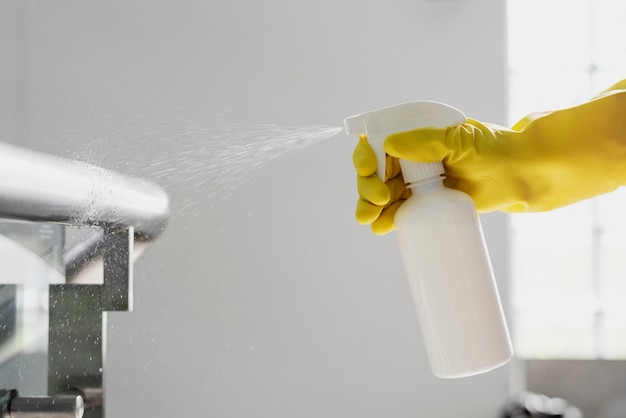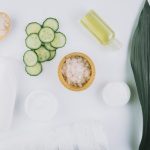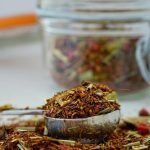
I often use my homemade all-purpose spray for general cleaning, but sometimes you need something stronger for the bathroom. Bathrooms can be a hot spot for mildew, bacteria, and viruses, especially if you have kids who don’t always aim well. This natural DIY bathroom cleaner is great for tackling grime, soap scum, and germs, plus it smells amazing!
I’m not really obsessed with killing all bacteria. I let my kids explore outside and even taste some organic dirt. We choose skin products that are friendly to our natural biome and eat fermented foods to help maintain good gut bacteria. While I believe our world is overly sanitized, there are times when a powerful natural cleaner is necessary, and the bathroom is definitely one of those places. With steamy showers, mold and mildew can thrive. Toilet seats can become contaminated, and kids (and adults) sometimes miss the mark. Hard water can also cause rust and lime build-up.
Flu season adds another layer of concern, especially with kids around.
This DIY bathroom cleaner is versatile enough to handle most bathroom cleaning tasks. Washing soda is more alkaline than baking soda, with a pH of 11. It helps soften hard water and cuts through limescale and grease. Just remember, washing soda isn’t the same as baking soda.
Borax tends to stir some debate, but I’ve decided it’s safe as long as it’s not used around food. Since this is a bathroom cleaner, you should be fine! You can skip the borax if you want, but the spray might not be as effective.
Many natural bathroom cleaners use castile soap, but I prefer Sal Suds here. It’s a powerful and natural detergent made from coconut. While some recipes suggest using Dawn, Sal Suds offers a more natural alternative.
Essential oils add antibacterial, antiviral, and antifungal properties to this bathroom cleaner, and they smell nice too. I use them a lot in small amounts in my homemade cleaners. This bathroom spray has a higher concentration of essential oils, around 1%, which effectively tackles stronger bathroom pathogens like E. coli, staphylococcus, and salmonella.
Even with this concentration, the essential oils are diluted enough that if a little gets on your skin, it shouldn’t irritate. Just a tip: If you have older citrus oils that might have oxidized, don’t throw them out. They might not be great for skin, but they’re still excellent for cleaning, so use them up in this recipe!
This bathroom spray combines lemon, orange, cinnamon, and clove essential oils. Alternatively, you could use a pre-made Germ Fighter blend. Eucalyptus or tea tree oil works well too if you want to switch things up.
This information was medically reviewed by Dr. Madiha Saeed, a board-certified family physician. Remember, it’s always a good idea to talk with your doctor for personal medical advice.
How do you tackle those tough-to-clean spots around your house? Feel free to share your tips and tricks!

